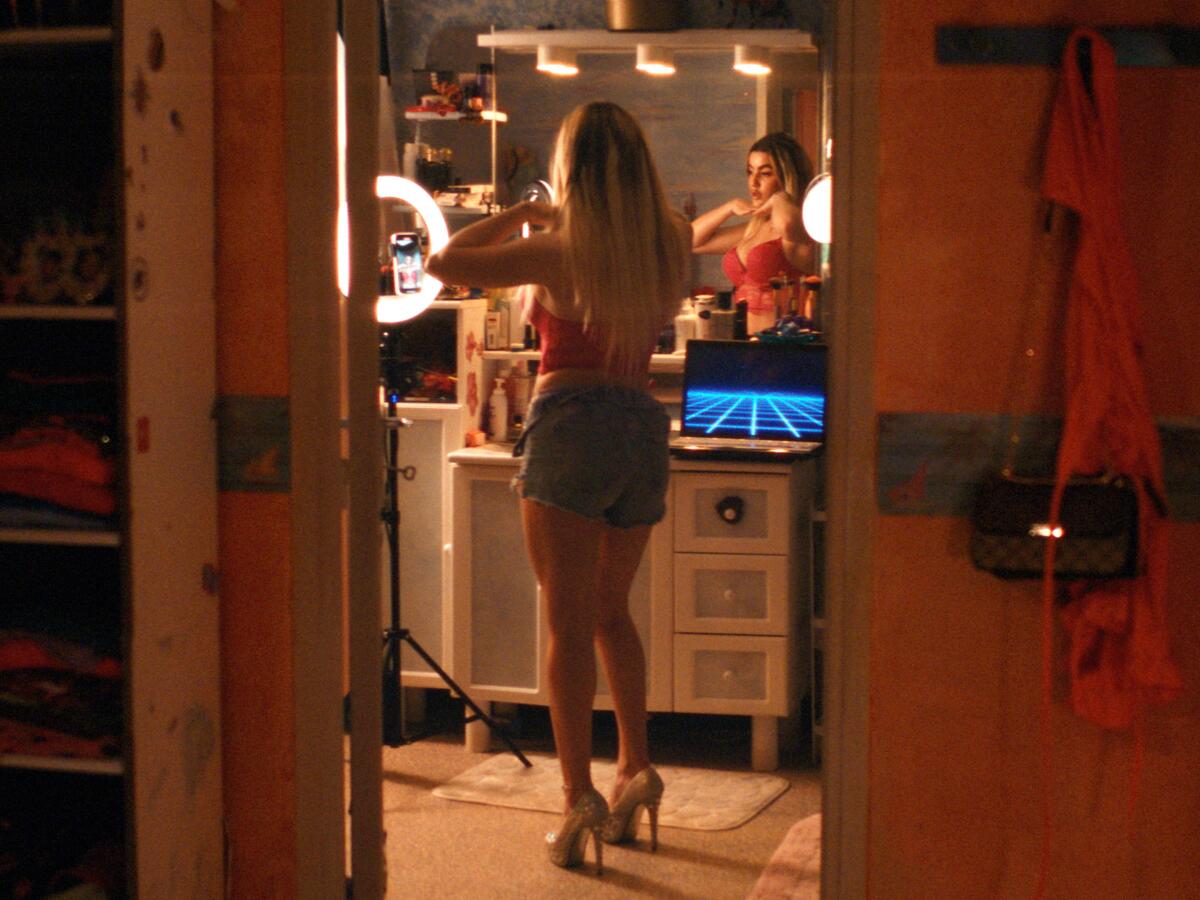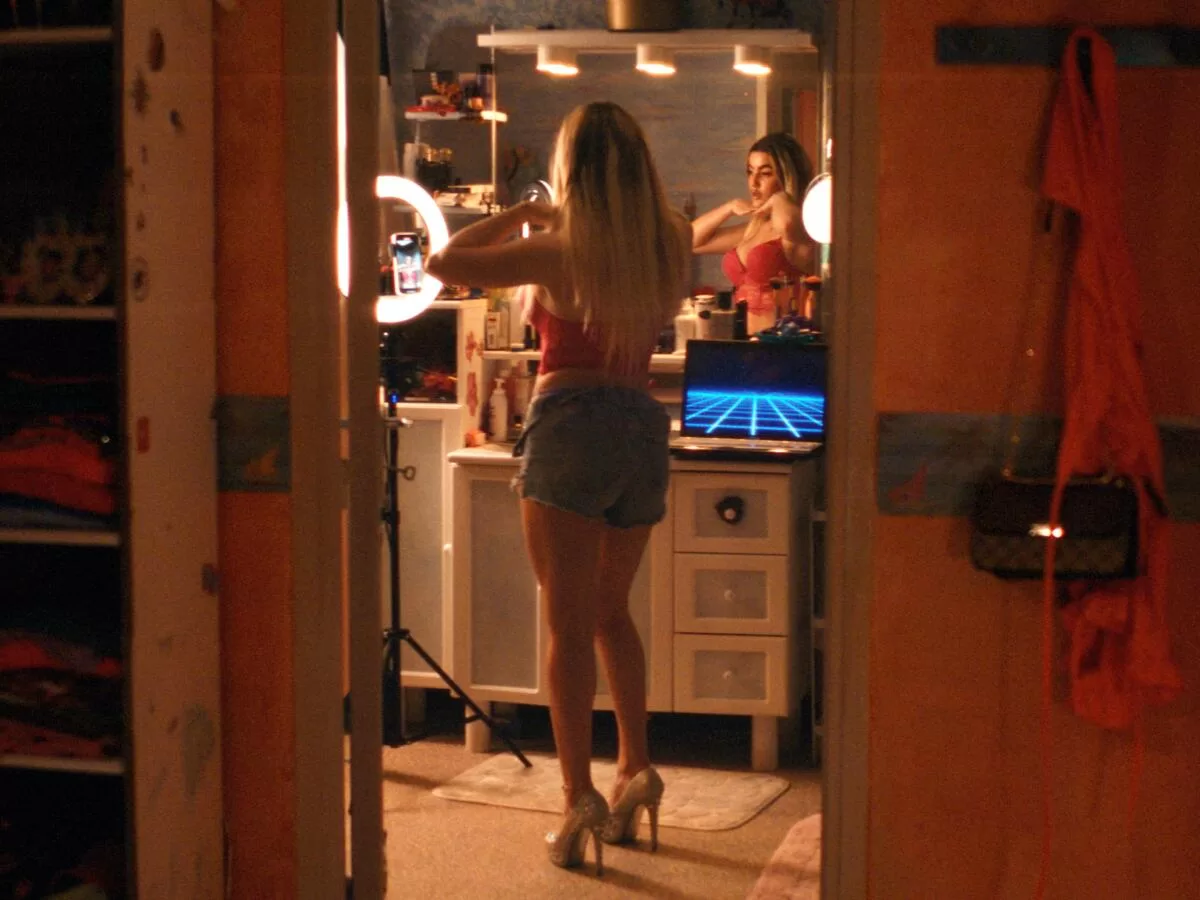From this act of omission, and with a bravura lead performance by Renate Reinsve, writer-director Halfdan Ullmann Tøndel anatomizes a scandal and the broken family behind it. But he also perceives that much of our current hand-wringing about the dangers of modern childhood glosses over — or covers up — who’s really responsible: adults.
After all, when an allegation of “sexual deviation” brings two boys’ parents in for a long, tense conference, “Armand,” which recently premiered in the Un Certain Regard section at the Cannes Film Festival, emphasizes that what actually happened is “less important” to the grown-ups than their own agendas. While school officials strive to prevent the encounter — never depicted, described only second- or third-hand — from attracting the notice of higher authorities, Armand’s mother, Elisabeth (Reinsve), and Jon’s mother, Sarah (Ellen Dorrit Petersen), wage a pitched battle of their own, one far more ferocious than that of lapsed friends or suburban rivals. The former is sensitive to the point of hysterics, inspiring in Reinsve sustained jags of raw emotion as compelling as anything I’ve seen onscreen this year; the latter is calloused to the point of cruelty, setting up the film’s unsettling climax. For what turn out to be different reasons, neither seems capable of keeping the boys front of mind.
But “Armand,” from the grandson of filmmaker Ingmar Bergman and actor Liv Ullmann, isn’t a bad-mommy parable. With Jon’s father, Anders (Endre Hellestveit), trying to play both sides, plus a mealy-mouthed principal, a counselor prone to ill-timed nosebleeds, and a junior teacher, Sunna (Thea Lambrechts Vaulen), in way over her head, the film instead suggests that fears about children’s well-being are often an expression — or tool — of adults’ personal and political motives. As with this year’s German-language Oscar nominee “The Teacher’s Lounge,” “Armand” confronts, albeit indirectly, the truth that children are the soil in which moral panics take root.
Even beyond the homophobic and transphobic attitudes that shape “gender-critical feminism,” rhetoric about “groomers” and legislation limiting the teaching of LGBTQ issues in schools in the U.S. and U.K., we live in an era of high anxiety about “kids these days.” We attempt to ban TikTok, control libraries and reading lists, crack down on campus protests; we fret over mental health, body image, test scores, extracurricular activities; we become the anxious helicopter parents and fusty scolds we once rebelled against. But Gen Alpha, just like every generation before it, is simply experimenting with forms of expression, and topics of import, that feel true to present circumstances: Some French parent surely tore their hair out when their kid returned, irreparably transformed, from “L’arrivée d’un train en gare de La Ciotat.”
With “Bird,” playing in the main competition, British filmmaker Andrea Arnold offers an alternative, handing her 12-year-old protagonist a smartphone camera and setting her loose. As her father (Barry Keoghan) prepares to marry his girlfriend of three months, and her mother struggles to extract herself from an abusive relationship, Bailey (Nykiya Adams) rebels by hitting record and wandering the housing estates and unkempt fields of Gravesend, near the mouth of the Thames. Instead of posting her vertical-format videos on Instagram, though, she projects them on her graffiti’d bedroom wall: brother Hunter (Jason Buda) receiving a haircut; her mother’s repulsive boyfriend, Skate, terrorizing her younger siblings; and strange new friend Bird (Franz Rogowski) twirling in a skirt as the sun comes up.
Long before the film reaches its startling, sneakily moving denouement, Arnold extends to Bailey the faith that parents and politicians seeking simply to control children’s behavior so sorely lack. What if we trusted kids to treat technology as an opportunity for self-expression and communication? To learn about privacy and self-control through guidance, not draconian restrictions? What if we allowed them the space, in their own vernacular, to explore life as we did in ours? This doesn’t mean complete freedom, of course; at one point, a group of tomboy Bailey’s older friends, armed with a razor blade, jump a peer accused of messing with one guy’s sister — a scene she runs from with the same alacrity she does Skate in one of his rages. But it’s refreshing that the film acknowledges the hypocrisy of adults who bristle at kids navigating the world as they found it, particularly when children’s moral compass, to say nothing of their courage, surpasses the adults in their midst.

(Festival de Cannes)
Even when the motive isn’t noble, though, there’s no more use castigating young social media influencers in 2024 than there has been in the past century of aspiring film and TV stars. By rejecting any semblance of scolding, Agathe Riedinger‘s main competition title “Diamant Brut” (Wild Diamond), which otherwise reads as derivative of, well, Andrea Arnold, manages to elevate the hardscrabble tropes in which it deals. It certainly doesn’t look down its nose at Liane (Malou Khebizi), a 19-year-old on the underbelly of the Côte d’Azur desperate for fame and fortune, or the notion that a teenager born after “Survivor” came on the scene might dream of a career in reality television as surely as one might winning an Oscar or making it to the NBA.
In stretches, as Riedinger directs her energies toward Liane’s development as an influencer and not her embittered mother or ne’er-do-well love interest, “Wild Diamond” constructs a working-class, Dardennes-style equivalent of that half-joking line about the Kardashian empire, “The devil works hard, but Kris Jenner works harder.” Clad in stripper heels and ultra-short skirts, Liane stalks parking lots and street corners selling pilfered department-store perfume until her feet blister; aggressively pursues unscripted opportunities; and never misses the chance to create content, whether out with her friends or posed perfectly before her ring light. Riedinger even supplements Liane’s posts by plastering her fans’ (and haters’ and reply guys’) comments onscreen. “Being loved is a talent?” her mother sneers, but in this context you might call it a craft. It takes work.
If Liane succeeds, we know early on, she will simply shift to a more lucrative form of exploitation; the single most effective scene in the film comes as an unseen casting director for a “Love Island”-like program asking increasingly invasive questions about her goals, her values, her willingness to play ball. The tell, though, is in the position of the camera: We see Liane standing there, scantily clad and attempting to project confidence, from the perspective of the casting director, placing viewers in a compromised position. Even those of us who are critical of reality TV’s excesses may be guilty of loving a good binge.
Ultimately, it’s this edge of fury — on behalf of children and adolescents if not from them — that ties together “Armand,” “Bird,” “Wild Diamond” and Rungano Nyoni‘s unnerving dark comedy in Un Certain Regard, “On Becoming a Guinea Fowl,” in which a Zambian family tries to bury a pedophile uncle’s pattern of abuses along with him. Perhaps it’s the Millennial upset at my Boomer parents speaking, or at least at the political trend lines their generation represents, but I thrilled to these films’ bracing resistance to adults’ feigned concerns about raising children in the world — the environment, the economy, the social and political order — they helped break.
When children train for gun violence instead of adults legislating to prevent it; when “influencer” and “reality star” have been made into more promising career paths than “teacher” or “Journalist”; when the prospect of owning a home and having a family dims because of economic realities; when politicians and university presidents sic the police on students advocating for an end to climate change or war, it is hard to remain persuaded that the real problem in our society is sharing goofy dance routines or “Criminal Minds” clips on a social media site.
When the child’s drawing is of bombs landing on a family standing beside their home, as it is in “Armand’s” opening montage of that childless school, the only useful moral panic may be the one we aim back at ourselves.
